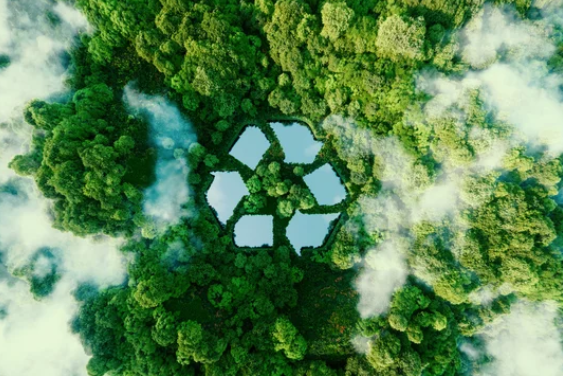Recycling Trends: What to Expect

When writing about yearly trends, the usual practice is to pen or post them during the first few months of a new year. However, I came across an interesting review of recycling trends in Recycle Coach that are worthy of attention and great to drop in a conversation. It’ll show how smart you are and prescient about future recycling.
Mark Zuckerberg & the Metaverse. It appears the impending universe of Metaverse will have a dramatic effect on recycling and management. The essence of this observation is that we’ll be “living” or experiencing life in the Metaverse, which will reduce the need for traveling and lessen the demand for our physical being. It’s simple. If you’re not going out, then you’re staying home, allowing, indeed almost demanding you recycle more often and efficiently. Ergo, less waste.
Plastic Recycling. Again, Again, & Again. Who is the king at making recycling plastic even more probable? It appears that John Layman, Ph.D., an employee of Procter & Gamble, is behind “PureCycle Technologies.”
According to PureCycle Technologies, which has a global license to make the product commercially successful, it is a process “for restoring waste polypropylene (PP) into an ultra-pure resin. The proprietary process removes color, odor and other contaminants from recycled feedstock, resulting in ultra-pure polypropylene suitable for any PP market.” To learn more, visit purecycle.com.com.
Forget about Google Maps. The Internet of Things will make recycling routes easier and more efficient. This is common in Europe, where some routes have sensors for garbage disposal and Dumpsters. The sensors allow the company to know who is doing the recycling, how frequently, and how diligently. The benefit is that it can focus on areas in a city that do poorly with recycling and target them for improvement.
GoFundMe with a Recycling Theme. The Recycle Coach describes it as an “innovative city recycling program.” A simple translation is that recycling programs in many cities took a hit during the pandemic. Using fundraising platforms has helped them finance programs that suffered a shortfall during the pandemic.
This also includes social media and app networks. If you bring everyone together in a righteous cause with modern IT technology, you can create a new source of revenue that most municipalities have essentially ignored to reignite local interest in recycling and sustainability.
My Recycling Material is Less Contaminated Than Yours.
Those outside the recycling sphere are often unaware that incorrect mixing of recycling material, referred to as “contamination,” can impede or halt the recycling process. A simple example is tossing a paper product into a plastic recycling stream. This mishap can send the item to a landfill, thus defeating the entire concept of recycling. A trend that has apparently started is embedding radio frequency identification technology (RFID). It’s that minor chip in some retail stores that helps prevent theft. In addition, it can store all the products’ recycling information, ensuring the item ends up in the appropriate environmental stream.
As with most things in life, there is seldom a “magic bullet” that changes everything almost overnight. Instead, it is gradual, steady progress that makes a difference. For example, in New Jersey, retail stores, including supermarkets, have outlawed plastic bags. While it will create a slight stumble for those who show up to shop without their own bag, many people will accept the practice as commonplace within a year. And some day someone’s toddler in New Jersey will say to a parent, “Wow, Mom, they actually bagged groceries in plastic bags. What were they thinking?”

